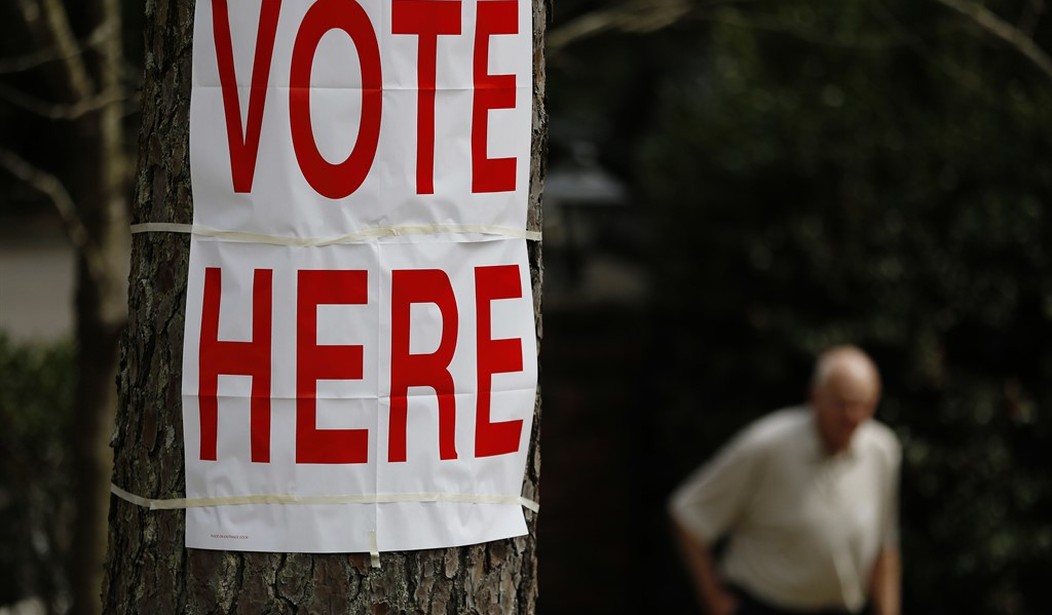In addition to the usual bevy of candidates for offices at the local, state and federal levels, voters in Ohio will be facing a number of ballot propositions next week. One of these is “State Issue 2,” a proposal to prohibit noncitizens from voting in any elections. The first question that comes to mind for some of us is probably along the lines of… ‘wait. Noncitizens are voting?‘ Well, not in Ohio. Or at least not yet. But in more liberal parts of the country, laws have been passed that allow legal migrants to vote in local elections and some are pushing to allow illegal aliens to vote as well. If State Issue 2 passes next Tuesday, the matter will be put to rest and only natural-born or naturalized citizens will be allowed to vote in any elections across the state. As usual, the issue is a divisive one along partisan lines. (Associated Press)
Republicans in Ohio are promoting a measure on the Nov. 8 ballot that would prohibit noncitizens from voting in local elections, fighting back at what they see as a push for such access in liberal enclaves such as San Francisco and New York City.
It would make Ohio the seventh state to take such a step if it passes and could motivate turnout among GOP voters in this year’s high-stakes midterm elections. The state also has a close race for a seat that will help determine the balance of power in the U.S. Senate.
Republican Secretary of State Frank LaRose, the state’s elections chief, is championing State Issue 2, a proposal advanced by Ohio’s GOP-led state Legislature.
The proposed change to Ohio’s state constitution is quite small in terms of the number of words being altered but very significant in terms of its effect. The current wording says that voting rights are assured for “every citizen” of the United States who meets the standard criteria. The new wording would clarify that voting rights are to be granted to “only citizens of the United States” who qualify.
As the linked report notes, State Issue 2 is addressing a problem that hasn’t really taken root in Ohio yet, but an effort has been made. The only place where this has become an issue is the tiny, liberal town of Yellow Springs, with a population of 3,700. The voters there passed a referendum in 2019 to allow legal, noncitizen migrants to vote in local elections. But that referendum was put on hold at the state level and the town didn’t have the money to mount a court challenge in response.
The need for this type of correction to state laws and constitutions stems from what some critics see as an oversight by the nation’s otherwise visionary founders. The constitutional requirement of citizenship for people to vote only applies to federal offices. But it’s not really an “oversight” when you consider the conditions of the times. The founders were building a nation they envisioned as being a collection of largely autonomous states having far more power than the nascent federal government. This was done by design, though the autonomy of the states has been vastly eroded over the past two hundred years by the courts. But back then, most decisions were left to the several states, so it makes sense that they wouldn’t have instituted such a mandate.
But I seriously doubt that the Founding Fathers ever envisioned a country like the one we live in today, where the prevailing attitude of the voters has splintered so broadly. For the record, I do understand and can sympathize with the idea that legal immigrants who are following all of the rules and seeking citizenship would desire a say in how their tax dollars are spent at the state and local levels. But that desire should be balanced against the risk of devaluing the idea of citizenship. Also, allowing legal noncitizens to vote would create a nightmare for local election officials who would suddenly have to review every voter registration application and weed out the illegals from the legal aliens.
We live in a far more homogenous country than the one the founders imagined. Perhaps if there is ever another constitutional convention, we should consider making citizenship a requirement for all elections rather than just those for federal offices. Of course, the possibility of a new convention opens up many other cans of worms that we might come to regret.









Join the conversation as a VIP Member